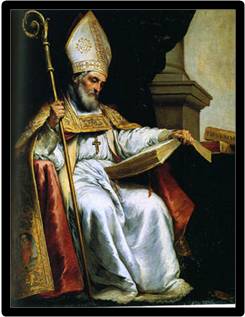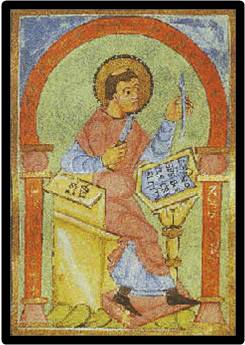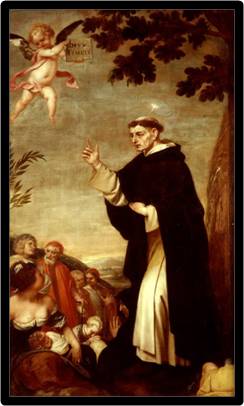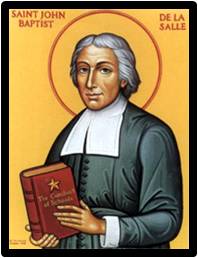APRIL 4 - ST. ISIDORE OF SEVILLE

Isidore was born at Cartagena, in Spain although their family was originally from Rome. His parents Severianus and Theodora were very pious and good. As a result, two of Isidore’s older brothers, Leander and Fulgentius, became bishops and saints, too. Their sister, Florentina, who was a nun, is also a saint.
As a child, Isidore received a very good education. His older brother Leander raised Isidore as their father had died. Little Isidore was not a very good student at first and thought Leander was just about the meanest person in the whole world because he pushed Isidore to do his lessons.
He taught Isidore that we can do so much good for Jesus’ Church when we take our education seriously. Finally, Isidore went to Jesus with his problem and became one of the most learned men of his time. Then he realized that Leander loved him and had really been a wonderful friend.
Isidore lived long before the Council of Trent, which started seminaries (schools) to train priests. St. Isidore thought that every diocese should have a seminary and a Catholic school for higher learning. Many years later, both of his dreams came true when the great Catholic universities as well as seminaries were started.
Isidore first became a priest and then was made the bishop of Seville, Spain. This is where he made a huge difference to the Church of his time. He was bishop of Seville for thirty-seven years. During that time, he took up the work of the previous bishop, his brother, St. Leander. These two brothers helped teach the Visigoth Arians about Jesus and they were gladly baptized in the Catholic Church.
St. Isidore was a good organizer and was asked to direct two important Church meetings called Councils. The first was in Seville, Spain, in 619, and the other in Toledo, Spain, in 633. These Councils helped the Church be more united.
This saint wrote many books, too. He wrote a history of Goths and a history of the world beginning with creation. He wrote a rule for religious orders. He wrote about Bible heroes and heroines. He even wrote a dictionary and an encyclopedia.
Bishop Isidore was always available for his people. The poor of Seville knew they could go to him for help. There was a long queue of people in need every day, at the bishop’s house. Isidore prayed and led a life of sacrifice, too. He really was a holy and much loved bishop. He died in 636.



